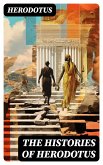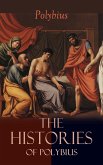In his seminal work, "Histories," Polybius employs a meticulous narrative style that intertwines factual history with political analysis, offering an insightful examination of the rise of the Roman Republic and its transformation into a dominant power. Written in the aftermath of the Punic Wars, Polybius's accounts are distinguished by his use of primary sources and firsthand experience, reflecting the complexities of warfare, governance, and cultural exchanges. His historiographical method emphasizes cause and effect, aiming to uncover the underlying mechanisms that enable political regimes to thrive or falter within the broader context of Hellenistic geopolitics. Polybius, a Greek historian and statesman of the Hellenistic period, serves as a vital link between Greek and Roman historiography. His experiences as a political prisoner in Rome significantly informed his perspectives, imbuing his work with a unique blend of both reverence for Greek culture and an appreciation for the burgeoning power of Rome. This duality is reflected throughout his narrative as he critically examines the strengths and weaknesses of different governmental systems and their relevance in shaping historical outcomes. Recommended for students of history, political science, and classics, "Histories" offers a compelling narrative that not only chronicles events but also stimulates critical thinking regarding the nature of power and governance. Polybius's rigorous analyses remain relevant today, making this work an essential read for anyone seeking to understand the foundational moments of Western civilization.
Dieser Download kann aus rechtlichen Gründen nur mit Rechnungsadresse in A, B, BG, CY, CZ, D, DK, EW, E, FIN, F, GR, H, IRL, I, LT, L, LR, M, NL, PL, P, R, S, SLO, SK ausgeliefert werden.









